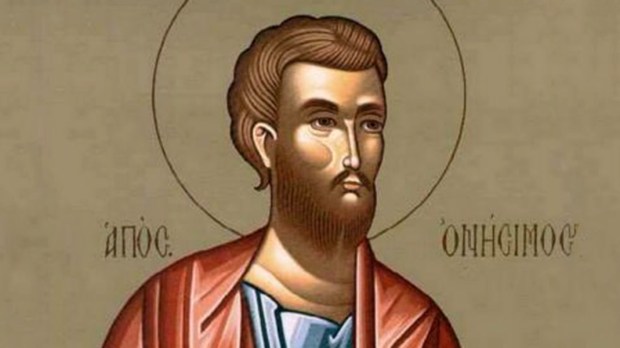In his letter to Philemon, St. Paul writes about a certain enslaved man whom he educated in the Christian faith.
I appeal to you for my child, Onesimus, whose father I have become in my imprisonment … I am sending him back to you, sending my very heart. I would have been glad to keep him with me, in order that he might serve me on your behalf during my imprisonment for the gospel; but I preferred to do nothing without your consent in order that your goodness might not be by compulsion but of your own free will.Perhaps this is why he was parted from you for a while, that you might have him back for ever, no longer as a slave but more than a slave, as a beloved brother, especially to me but how much more to you, both in the flesh and in the Lord. So if you consider me your partner, receive him as you would receive me. (Philemon 1:10,12-17)
Various traditions pick up where the New Testament left off and find Onesimus as the bishop of Ephesus, having been ordained by the apostles. However, his newfound Christian faith brought him under fire and he was arrested in Rome and sentenced to death after preaching about the beauty of celibacy. He was cruelly tortured and then beaten to death.
While little else is known about Onesimus, it reminds us that these various characters in the Bible were real people and were deeply affected by the proclamation of the Gospel. They were changed forever and helped others find freedom in Jesus Christ.

Read more:
5 Saints who witnessed Jesus’ Passion

Read more:
Did the leper Jesus cured become a bishop in France?

